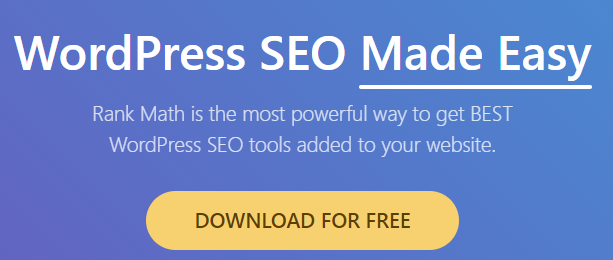
Blogging is the act of self-publishing online, involving writing, photography, and other media. Initially, blogging was used for personal diary-style entries, but it has now expanded to be included in business websites. The key features of blogging are regular updates, informal language, and the chance for readers to interact and initiate discussions.
In the following passage, you will be provided with an outline regarding the definition of a blog, its widespread appeal, and suggestions for commencing your personal blog.
What is blogging
Originating from the term “weblog,” the word blog is an abbreviated version that signifies a platform for early internet users to record their daily experiences through diary-like posts. As blogs gained popularity, communities began to form around popular ones, facilitated by the ability for readers to leave comments.
Similar to other internet-based innovations, a multitude of entrepreneurs recognized the marketing advantages of having a blog, and the incorporation of blogging within the business community played a crucial role in boosting its popularity. Aside from serving as a marketing tool for businesses, a blog can also serve as a standalone home business.
How blogging works
The process of blogging can be broken down into obtaining a website and publishing authentic content on it. If one is technologically inclined, they can purchase a domain name and construct the website on their own. For individuals with limited knowledge of HTML, they have the option to create an account on platforms like WordPress, which simplify the process of web design and publication.
Blogs, similar to social media sites like Facebook, are typically uncomplicated websites. They may have distinct sections for storing older articles and a dedicated space for contact information or a biography, but the main blog content is usually contained on a single page that can be scrolled through. Comparable to a Facebook news feed, the latest posts are displayed at the top of the page.
One more distinct characteristic of blogging is the practice of interlinking, which involves a blogger inserting a hyperlink to another individual’s blog within their own blog post.
When a music teacher keeps a blog and creates a blog post about how to shape a chord, they could include a link to another musician’s blog to illustrate how the chords are used. Similarly, a political blogger might insert a link to another politics blog and then express their agreement or disagreement with a post on that blog. By including these links and having a comment section, blogs cultivate a communal atmosphere that sets them apart from other platforms.
Pros explained
- Good for SEO: Search engines love new content, and as a result, blogging is a great search engine optimization (SEO) tool. A defining feature of blogs is the frequency with which they’re updated, and that fresh content helps improve a website’s SEO performance.
- Maintains communication with customers: Blog posts can keep your customers and clients up-to-date on what’s going on, let them know about new deals, and provide tips. The more frequently you post useful content, the more often a customer visits your blog, and the more likely they are to spend money.
- Builds rapport with customers: Not only does a blog allow you to show off what you know—building your expertise and credibility—but people can also post comments and interact with you. That allows customers to get to know you, and hopefully, develop relationships that turn into purchases.
- Generate alternate income: Successful blogs can make money themselves. Along with your product or service, blogs can generate income from alternate sources such as advertising and affiliate products.
Cons explained
- Time-consuming: The success of blogging comes from having people return, and they only return when there’s new stuff to read. That means bloggers need to generate content at least several times a week to be effective at engaging readers and increasing SEO.
- Constantly requires fresh ideas: Posting several times per week won’t be beneficial if the ideas aren’t fresh and engaging. It can be draining to constantly conceptualize and execute fresh content. The good news is that you don’t have to do it all yourself. You can have guest writers or hire freelancers. Another option is to curate content from others. You can buy private label right (PLR) content and modify it for your blog.
- Payoff is delayed: One of the biggest frustrations with blogging is that it’s time-consuming with little payoff in the beginning. It takes time to build up a readership and momentum.
- Blogging in and of itself won’t generate income: At one time, posting an article was enough to generate traffic and income. Today, a successful blog needs email marketing, additional perks such as content upgrades, and an engaged social network, such as a Facebook group.
Reasons you might want to start a blog
There are multiple motivations for starting a blog. One might consider beginning one as a means of pursuing an enjoyable hobby, generating additional income, establishing a community, or for any other purpose listed below:
1. To document what happens to you
The term “blog” is derived from “weblog,” which refers to its original purpose of recording events. If you want to have a centralized space to store your thoughts and photos, consider creating a blog.
2. To have a creative outlet
Blogging involves the tasks of writing, editing, and, to some degree, design, which makes it a highly creative endeavor. If you desire an affordable means to express yourself, blogging is an excellent choice.
3. To share your thoughts and experiences
Your thoughts and experiences are unique to you, meaning that no one else possesses them. A blog provides a platform for you to share your thoughts, engage in discussions, and create authentic connections with others.
4. To connect with people
Blogging is a great method of connecting with various individuals, including fellow bloggers, creators of content, and your desired audience. Blogging provides opportunities to interact with people who you may have otherwise not encountered. The blogging community is highly engaged on platforms like Facebook, Instagram, and Reddit.
5. To get better at writing and digital marketing
If you want to improve your writing skills, writing for a blog on a daily or weekly basis can be helpful because blogging is considered a craft.
Starting your own blog will provide you with valuable experience if you are interested in building skills as a webmaster, social media marketer, and content writer, as bloggers often fulfill these roles themselves.
6. To build your brand and credibility
By creating a blog, you can establish yourself as an authoritative figure in your field or industry, building your brand and showcasing your expertise. Your blog posts have the potential to highlight your extensive knowledge and experience on specific topics.
7. To bring in sales or an income
According to Indeed, bloggers have the potential to generate sales and earn an average annual income of $37,073, whether it’s for an existing business or a completely new venture.
How to make money with a blog
Bloggers have the option to earn money through various strategies, each with varying levels of effort. Many sources of blog income depend on unstable factors like search engine algorithms and brand budgets. It is strongly advised to mitigate risk by selecting multiple methods to diversify your revenue.
Brand partnerships
Sponsored content is frequently created by bloggers in collaboration with brands. This typically involves assessing a particular product or seamlessly integrating a product mention into regular content. Depending on the performance of your content and shared interest, brand partnerships may either be one-time arrangements or develop into enduring relationships.
Advertising networks
Advertising networks offer payment for running ads on your blog or when users click on ads, or both. However, some networks like Mediavine have a minimum monthly view requirement of 50,000, whereas others such as Google AdSense do not have any minimum view count requirements.
Affiliate links or codes
Two common examples of affiliate networks that bloggers can join are Amazon Associates and LTK. These networks enable bloggers to create special links for products discussed on their blogs, allowing them to earn a commission when those products are purchased.
Affiliate codes function in a similar way to links, enabling you to earn a small commission when someone buys a product. When customers shop online, brands may provide you with a distinctive code to share with your readers. By incorporating this code into your content, you can encourage sales.
Digital products
If you prefer to avoid the complication of coordinating packing and shipping, digital products may be more suitable for you. Creating digital products requires relatively less effort and is cost-effective, which enables you to offer products that your audience is interested in purchasing. In addition, most digital products can be promptly accessed or downloaded by customers right after they make a purchase.
There are several examples of digital products that you can sell, although this list is not exhaustive.
- Printables. These can be anything from calendars and lesson plans to budgeting sheets.
- Online courses. You can use a platform such as Teachable to create more detailed lessons or tutorials than what your blog provides.
- E-books. An e-book is usually a self-written, self-published title that comes in PDF form.
Physical products
You have the option to utilize your blog for selling physical products, regardless of whether you currently sell items on another platform or desire to establish brand new channels.
One option for monetizing your blog is to incorporate links to products you sell or create merchandise that fits your content and target audience. For instance, if you run a fashion blog, you can offer T-shirts, hats, or tote bags featuring your blog’s logo.
Premium content or memberships
One can choose to make blogs freely accessible, but it is also possible to generate extra income by placing exclusive content behind a paywall, which requires dedicated readers or fans to pay for access in order to read it.
Patreon and Buy Me a Coffee are two instances of platforms that aid creators in hosting content exclusively for subscribers. These platforms can also be utilized to establish memberships, in which your readers pay a monthly fee to gain access to high-quality content.
Consulting or Coaching
If your readers begin requesting specific advice or guidance, it could indicate that you have the potential to generate income through individual consulting or coaching sessions.


